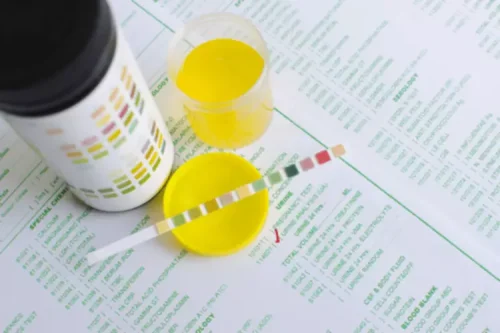
Signs of an overdose include confusion, unconsciousness, vomiting, and more. A person should seek emergency medical care to treat an alcohol overdose. It is best if their behavior has been observed while the subject is sober to establish a baseline. Several well-known criteria can be used to establish a probable diagnosis.

What Is Alcohol Poisoning?
In the emergency room, a doctor will check their BAC and look for other signs of alcohol poisoning, such as a slow heart rate and low blood sugar and electrolyte levels. Although young people are most likely to engage in binge drinking, deaths from alcohol poisoning usually involve men between the ages of 35 and 64, according to the CDC. And middle-aged people are more likely than younger https://ecosoberhouse.com/ ones to take prescription drugs, which can increase the severity of alcohol poisoning. Prompt treatment of an alcohol overdose can prevent life-threatening health problems. However, severe alcohol overdose may cause seizures, resulting in brain damage if oxygen to the brain is cut off. If you think someone has alcohol poisoning, never hesitate to seek emergency medical care.
- A person does not need to exhibit all of these symptoms to be in danger of dying or sustaining permanent brain damage.
- A mental health or psychiatric evaluation is usually part of the diagnosis once the person is sober and lucid.
- These functions include breathing, heart rate, body temperature, and gag reflex.
- Know the danger signals, and if you suspect that someone has an alcohol overdose, call 911 for help immediately.
- Thousands of people under 21 die from alcohol-related deaths in the U.S. each year.
- Alcohol depresses nerves that control involuntary actions such as the gag reflex, which prevents choking.
Alcohol Poisoning Symptoms
In fact, the smaller-bodied person may experience an alcohol overdose after drinking the same amount that a larger-bodied person can consume safely. An alcohol overdose, or alcohol poisoning, is one health problem that can result from too much alcohol consumption. It can happen when you drink too much alcohol at one time. The best way to avoid alcohol poisoning is to not drink or to limit your alcohol consumption. If you choose to drink, it’s a good idea to drink responsibly and stick to the guidelines for moderating drinking that are mentioned above.
- Even after a person is released from hospital care, it can take up to a month for them to feel normal again.
- This can increase an individual’s risk of being injured from falls or car crashes, experiencing acts of violence, and engaging in unprotected or unintended sex.
- Alcohol at very high levels can hinder signals in the brain that control automatic responses, such as the gag reflex.
- In the emergency room, a doctor will check their BAC and look for other signs of alcohol poisoning, such as a slow heart rate and low blood sugar and electrolyte levels.
- Overdose symptoms will vary from substance to substance, but many overdose cases share common warning signs.
- They may also experience seizures or have blue-tinged or pale skin.
Is there a lethal BAC?

Cirrhosis usually takes decades to develop, and sometimes people are not aware of it until it’s too late. Because alcohol is a drug in the depressant category, an alcohol overdose can look very similar to an opioid overdose. In EITHER case it is vitally important that the first thing you do is call 911 without hesitation.
Drugs & Supplements
- But in some cases, people with this condition might have accidentally or intentionally drank household products containing alcohol, such as mouthwash or vanilla extract.
- A person can consume a fatal dose of alcohol before passing out.
- Your stomach will continue to absorb alcohol into your bloodstream even after you stop drinking.
- Hypoglycaemia occurs due to ethanol’s inhibition of gluconeogenesis, especially in children, and may cause lactic acidosis, ketoacidosis, and acute kidney injury.
- We strive to create content that is clear, concise, and easy to understand.
- Memory gaps or blackouts may also occur, and the person may vomit.
They include deaths where the primary (or underlying) cause of death listed on the death certificate was one of 58 alcohol-related causes. That said, it’s worth knowing your body’s limits and what to look for if alcohol poisoning is a worry. The amount of alcohol it takes to prove fatal for a person may vary by individual factors, such as body weight and metabolism. A BAC above 0.40% has a risk of serious complications, including coma and death, according to MedlinePlus, a service of the National Library of Medicine. A mental health or psychiatric evaluation is usually part of the diagnosis once the person is sober and lucid. It may seem like a person has to drink a lot to get to this stage.
Dangerous myths
Blood alcohol concentration (BAC) is the amount of alcohol in a person’s bloodstream. In some cases, it may prove fatal if a person does not receive emergency care. Alcohol poisoning is the presence of so much alcohol in the blood that it alters the function of the brain and other alcohol overdose organs. Signs and symptoms include confusion, slow breathing, a loss of consciousness, and vomiting. Alcohol poisoning is severe or life threatening impairment. Several functions — including speech, balance, coordination, judgment, and reaction times — are significantly impaired.
Public Health
This can make it harder to keep track of how much alcohol you’ve actually consumed. Below we’ll explore some of the factors that can contribute to alcohol poisoning and how long you’ll feel the effects. The time it takes alcohol to both have an impact and subsequently leave your system can depend on many factors, such as your weight and how many drinks you’ve had within a given time. These estimates are based on U.S. death certificate data.



Recent Comments